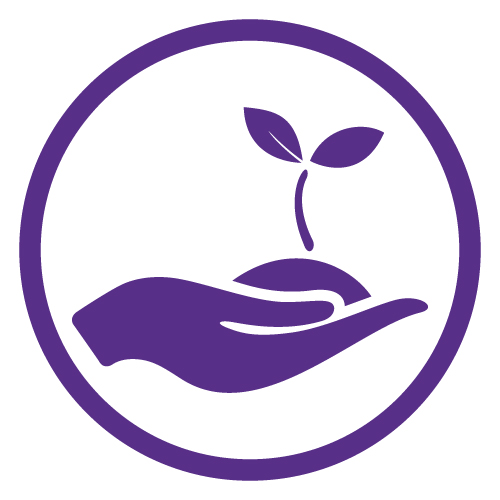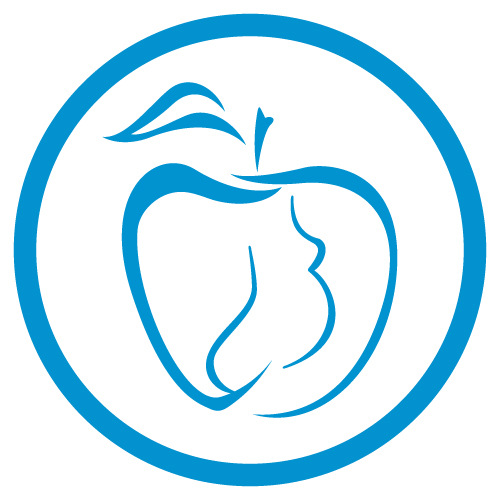 IBCLC Detailed Content Outline: Pathology Focused CERPs - Section III
IBCLC Detailed Content Outline: Pathology Focused CERPs - Section III
Access CERPs on Pathology for the IBCLC Detailed Content Outline recertification requirements. Enjoy convenient on-demand viewing of the latest Pathology focused IBCLC CERPs at your own pace.
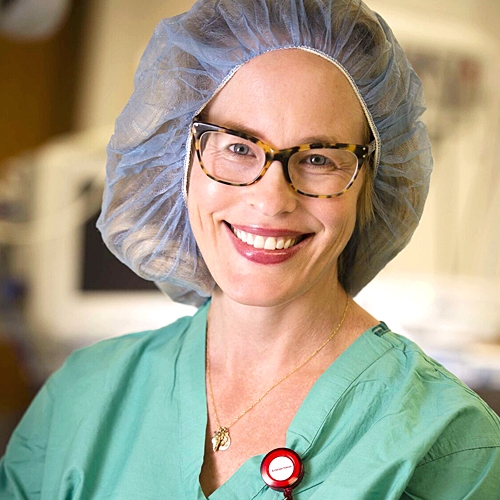

Katrina B. Mitchell, MD, IBCLC, PMH-C is a breast surgeon, lactation consultant, and perinatal mental health provider. Her surgical practice includes the care of women with breast cancer and benign breast disease. She sees runs a daily breastfeeding medicine practice, treating patients for a wide variety of lactation concerns ranging from hypolactation to nipple trauma. Additionally, she provides medication management and support for women impacted by perinatal mood and anxiety conditions.
Dr. Mitchell lectures locally, nationally, and internationally on the intersection of lactation and surgery, and has authored book chapters, clinical care protocols, and journal articles on the topic. She is the creator of the physicianguidetobreastfeeding.org, an evidence-based resource for breastfeeding families and the communities that support them. Dr. Mitchell resides in Santa Barbara, California and practices at the Ridley Tree Cancer Center at Sansum Clinic. She enjoys reading, traveling, and spending time with her son camping at the beach. She can be reached at physicianguidetobreastfeeding.org.
Topic: Performing Physical Breast Assessment - [View Abstract]
The purpose of this presentation is to first review basic components of the breast physical exam, including assessment of the breast, nipple areolar complex (NAC) and regional nodal basins. We also briefly will review breast imaging that may be required for diagnostic purposes in the setting of lactation.

Persistent Pain During Breastfeeding - A Challenge in Lactation Counseling

Alexandra Glass is a gynecologist/ obstetrician and an International Board Certified Lactation Consultant working in Hanover, Germany, where she lives with her family. Alexandra is the Vice President of BDL Lactation Consultant Association. She speaks at Local, National and International conferences and she teaches preparatory courses for the IBCLC exam. She is the mother of two daughters, who were both breastfed.
This presentation will give an overview of the reasons that can cause painful breastfeeding and how we can intervene either via breastfeeding management or medically.
The reasons might be
- poor latch
- problems with sucking, like tongue tie or other anatomical issues, also nipple confusion
- vasospasms
- infections, mastitis
- Mammary Constriction Syndrome
- injuries or medical conditions of the skin, such as psoriasis, dermatoses, eczema
- oversupply
- plugged ducts
- incorrect pumping or hand expression
- allodynia/functional pain
- psychological and emotional aspects
Important aspects concerning breastfeeding management and counselling and possible therapeutic interventions will be discussed as well as the impact of painful breastfeeding on the breastfeeding dyad and the whole family.

View Details / Enroll

View Details / Enroll

Physiologic Biomarkers to Detect Subclinical Acute Kidney Injury in Premature Infants

Dr. Marin is currently an Assistant Professor at Augusta University, and is an active researcher in the Level IV NICU at Children’s Hospital of Georgia. She received her BSN from the University of Tennessee, her MSN from Stony Brook and her PhD from Emory University. Dr. Marin’s program of research is focused on defining non-invasive methods to predict early-onset acute kidney injury in preterm infants, including analysis of metabolomics, proteomics, the gut-kidney microbiome axis, and renal hypoxia measured by near-infrared spectroscopy as they relate to subclinical and actual acute kidney disease.
Acute kidney Injury (AKI) prior to the completion of nephrogenesis at 34 weeks’ gestation has significant life-long effects. The immature kidney only receives 3-4% of total cardiac output, compared to 20% in term infants, children and adults. Therefore, minimal decreases in oxygen delivery may substantially compromise proper oxygen utilization increasing the risk for morphologic changes and reduced nephron endowment. Current diagnostic criteria (serum creatinine (sCr) elevations with oliguria) cannot detect early-onset AKI, as up to 50% of nephron damage has already occurred by the time these abnormalities become apparent. This presentation will look at new research related to the current diagnostic criteria for AKI in the preterm infant, the physiologic mechanisms involved in AKI and short and long-term implications.

View Details / Enroll

Popular Diet Trends: Impact and Safety During Lactation

Meghan McMillin holds a Master’s Degree in Human Nutrition from the University of Illinois at Chicago. She has been a Registered Dietitian Nutritionist (RDN) since 2013 and became an International Board Certified Lactation Consultant (IBCLC) in 2019.
Meghan spent 5 years working clinically in the NICU, pediatric floor and women’s units of a local hospital. In 2019, Meghan started her own private practice and consulting company, Mama & Sweet Pea Nutrition, with a focus on postpartum and infant care. The mama to two young kids with food allergies, helping other families manage food allergies, whether it’s while breastfeeding, during the introduction of solids, or later in childhood, is her passion.
Meghan is a member of the International Lactation Consultant Association and the United States Lactation Consultant Association. She enjoys sharing her knowledge through social media and public speaking. Meghan is the coauthor of the eBook What To Eat When Your Baby Can’t Tolerate Milk, Soy, or Egg Protein; Nutrition guidance for avoiding milk, soy, and/or eggs while lactating.
Meghan has presented both nationally and internationally including for GOLD learning, the National WIC Association and the Academy of Nutrition and Dietetics. In 2020, Meghan was awarded the Emerging Professional in Women's Health Award from the Women's Health Dietetic Practice Group of the Academy of Nutrition and Dietetics.
Topic: Popular Diet Trends: Impact and Safety During Lactation - [View Abstract]
Diet culture is pervasive and it seems everyday brings about a new popular trend or style in how, when, or what to eat. The postpartum period often brings about an incredible amount of pressure to lose weight or “bounce back” to pre-pregnancy body shape. It’s no wonder many turn to popular diet trends with the promises of quick weight loss. However, with a lack of research in the lactating population, there remains concern regarding both the effect these diets may have on milk supply and their safety. This presentation will provide lactation professionals with the information they need to have informative discussions with their clients about popular diet trends.

View Details / Enroll

Post Frenotomy Wound Management and Bodily Autonomy

Effath Yasmin is India's leading Biodynamic Craniosacral Therapist, an award winning International Board Certified Lactation Consultant & a Documentary Film Maker. She is also an International Speaker, an Author & a Bach Flower Practitioner.
Her special interests lie in Infant Oral, Sucking & Airway Dysfunction, Tongue Tie, Birth Trauma, Craniofacial Development and a range of chronic physical and mental dis-eases & quantum energy phenomenon. She applies these sciences into Life Coaching, Inner Child Healing and Parenting. Her approach stems from fundamental truth of human organism is complete and self-regulatory and treatment & counselling approach is by deep listening & true empathy to mind body and spirit rather than by intervention.
She currently sits on several national & international professional boards.
She has spear-headed & dedicated her life to many projects with a central mission of advocacy, education and awareness for integrative multidisciplinary wellness approach worldwide. Her work has been published in the International Journals & a textbook and she writes extensively on print and digital media on the subjects of Breastfeeding, Tongue Tie, Parenting & Health related subjects.
Her international award winning film 'Untying Breastfeeding' exposes the glaring unseen obstacles to Birth & Breastfeeding & early parenting that can help restore motherhood and has been widely celebrated over 1500 Cities worldwide. She is currently pursuing her Ph.D. in Metaphysical Sciences.
Topic: Rethinking Surgical Tools - Infant Frenotomy & Pain - [View Abstract]
Topic: Trauma Informed Care in Clinical Infant Oral Assessment: Understanding Body Autonomy - [View Abstract]
The most talked about discussions amongst parents or professional groups across the world is post frenotomy wound management. In the last 15-20 years of development, the field of oral restrictions has yet to see an evidence-based approach or even just a global consensus on approaches and their efficacy in wound management. Therefore lactation consultants, dentists, and surgeons have been using their clinical reasoning to choose the methods and protocols for individual breastfeeding dyads. Nevertheless, the current unregulated wound management protocols have been often reported as traumatic experiences for infants, parents, and care providers. Additionally, a physical oral examination of an infant during the assessment, evaluation, and treatment, and rehabilitation of oral restrictions is essential and vital in an IBCLC clinical practice. It's often seen as a ‘necessary evil’ in clinical work. Some infants may be at risk of reattachment and/or trauma which can have lifelong impacts such as triggers for past memories, anxiety, distress or discomfort, or even PTSD. This can lead to oral aversion symptoms, complete refusal to latch and breastfeed, turning away from food, and gagging, coughing, and choking. Therefore, a respectable trauma-informed approach to oral examination and wound management is based on the fundamental principles of respect for bodily autonomy ensuing a sense of safety, trust, and connection.


Diana West is an IBCLC in private practice. She is the co-author of “Sweet Sleep: Naptime and Nighttime Strategies for the Breastfeeding Family,” the 8th edition of La Leche League International’s “The Womanly Art of Breastfeeding,” “The Breastfeeding Mother’s Guide to Making More Milk,” the clinical monograph “Breastfeeding After Breast and Nipple Procedures,” and ILCA’s popular “Clinician’s Breastfeeding Triage Tool.” She is the author of the “Defining Your Own Success: Breastfeeding After Breast Reduction Surgery.” She is on the Editorial Review Board for the “Journal of Clinical Lactation,” a La Leche League Leader and the Director of Media Relations for La Leche League International. She has a bachelor’s degree in psychology and is the administrator of the popular BFAR.org, LowMilkSupply.org, and LactSpeak.com websites. She lives with her three sons and one husband in the picturesque mountains of western New Jersey in the United States.
Topic: Mothers Speak Out: Top Five Traits of a Great Lactation Consultant - [View Abstract]
Topic: Mothers Speak Out: Top Five Traits of a Great Lactation Consultant - [View Abstract]
Topic: Postpartum Nipple Pain: Causes, Treatments, and Empathy - [View Abstract]
Topic: Sleep Training: History, Research, and Outcomes - [View Abstract]
Topic: Sweet Sleep: Bedsharing for Breastfeeding Mothers and Babies - [View Abstract]
In a vivid (and sometimes graphic!) presentation of photos contributed by lactation colleagues around the world, a wide variety of nipple pain causes, treatments, and counseling strategies are explored and discussed.
View Details / Enroll

Preventing the Plunge: Why the First 2 Weeks are Crucial for Breastfeeding Duration.

Cindy Leclerc and Jana Stockham are Registered Nurses and IBCLCs with over 20 years experience helping families get started with breastfeeding. In addition to hands on care, Cindy and Jana use technology to support families through their website (cindyandjana.com), online prenatal breastfeeding classes (simplybreastfeeding.ca) and iPhone app, NuuNest. Cindy is a strong believer in mother-to-mother support, helping to facilitate breastfeeding and postpartum depression support groups. She is intrigued by all things online and actively uses social media to promote breastfeeding. Jana has been trained as a Baby Friendly assessor and helped to coordinate the first Baby Friendly designation in Saskatchewan. She has a passion to help families with new babies and facilitates a group for breastfeeding moms.
Topic: Meeting your breastfeeding goals - [View Abstract]
Topic: Preventing the Plunge: Why the First 2 Weeks are Crucial for Breastfeeding Duration. - [View Abstract]
The majority of women begin breastfeeding at birth. Within the first 6 weeks, however, breastfeeding rates fall dramatically. To help women hang in with breastfeeding beyond the first weeks, we must first understand why they struggle. Learn what the research is saying and what you can do in your practice to help women meet their breastfeeding goals. IBCLC’s who specialize in the early weeks of breastfeeding will share case examples based on over 20 years of working with breastfeeding families.

View Details / Enroll

View Details / Enroll

Primers for Nutritional Counseling in Pregnancy: Lessons from Gestational Diabetes

Dr. Teri Hernandez is the Associate Dean for Research and Scholarship in the College of Nursing and an Associate Professor of Medicine and Nursing at the University of Colorado. Over 19 years at CU, she has developed a program of research exemplified by the execution of carefully controlled clinical studies focused on nutrition, metabolic health, and early life exposures. The goal of these studies is to illuminate ways to improve the lives of women, infants and their families using a multidisciplinary team science approach. Teri is a cardiac nurse by training. She has a dedicated commitment to understanding insulin resistance as both an adaptation and as pathology. Her research focuses on diabetes/obesity, pregnancy, and fetal growth, with an emphasis on how nutrition and metabolism influence these conditions. She and her research team (Infant GOLD, Investigations in the Gestational Origins of Lifelong Development) have a research program focused on in-utero programming influences and through this platform, she is committed to training high-caliber clinical investigators. Dr. Hernandez is an educator in the graduate school at CU, serves as Director for the Colorado Clinical and Translational Research Institute Early Life Exposures Research program, and is a Pediatric Nurse Scientist at Children’s Hospital Colorado.
Nutrition has a powerful and lasting influence on maternal and fetal outcomes in pregnancy. In gestational diabetes (GDM), nutrition therapy remains the primary approach to treatment and we now understand that lessons from nutrition in GDM may be applied to all pregnancies. Recent data underscore metabolic similarities in patterns of glycemia and lipemia between diet-controlled GDM and maternal obesity without GDM. This highlights an opportunity to more thoughtfully target women with obesity outside of GDM, where macrosomia rates are high, for treatment with nutrition. The importance of good nutrition for all pregnant women was recently highlighted by data demonstrating strong associations between fasting and postprandial triglycerides and neonatal adiposity outside of GDM, further supporting a role for targeting these nutrition sensitive indicators. Currently, evidence does not support one particular nutritional approach to treatment of GDM. The quality of the available evidence is poor due to high heterogeneity. However, a recent meta-analysis across 18 RCTs and 8 diet patterns demonstrated that any modification which improves from intake at GDM diagnosis is effective in reducing fasting and postprandial glucose, and lowering infant birthweight. The goal is balanced, affordable and culturally acceptable nutrition for women with GDM, extending to all pregnancies.

Promoting Self-Management of Breast and Nipple Pain for Women During Breastfeeding

Ruth Lucas, PhD, RNC, CLS, received her Bachelor of Science in Nursing from George Mason University (1986) and her Doctor of Philosophy of Science (2011) from the University of Illinois at Chicago. Based on 20 years of supporting women and infants to initiate breastfeeding, her research focuses on the biobehavioral mechanisms of breastfeeding, such as breast and nipple pain. Dr. Lucas and her team conducted a pilot randomized control trial (RCT) as part of the Center for Accelerating Precision Pain Self- Management (CAPPS-M) (P20NR016605). The pilot RCT tested the feasibility, acceptability, and efficacy of a breastfeeding self-management (BSM) intervention for breast and nipple pain during breastfeeding and found the BSM intervention significantly reduced breast and nipple pain and is associated with pain sensitivity polymorphisms. Her published work describes management of pain during breastfeeding, a clinical indictor of infant breastfeeding behaviors, and a biomedical device to measure breastfeeding in real time.
Topic: Promoting Self-Management of Breast and Nipple Pain for Women During Breastfeeding - [View Abstract]
Despite 90% of women experiencing breast and nipple pain during breastfeeding, mothers rarely receive adequate knowledge and skills for breastfeeding pain self-management and cease breastfeeding. Our randomized control trial (RCT) pilot study tested the feasibility, acceptability, and efficacy of a breastfeeding self-management intervention (BSM) on breast and nipple pain and breastfeeding outcomes. Sixty women were recruited after delivery and completed survey measures of pain and breastfeeding outcomes, pain sensitivity testing and a biological sample to assess genetic risk for pain at baseline. Both groups completed pain and breastfeeding outcomes surveys via texting links using REDCap 7.4. Women in the intervention group received biweekly nurse-lead texting and cloud-based educational modules addressing breast and nipple pain and breastfeeding challenges. The BSM intervention was acceptable and sustainable for 94% of the women who continued to breastfed to 6 weeks. Acute breast and nipple pain at 1 and 2 weeks were significantly reduced and was associated with pain sensitivity polymorphisms, suggesting a genetic risk profile of pain-associated breastfeeding cessation.
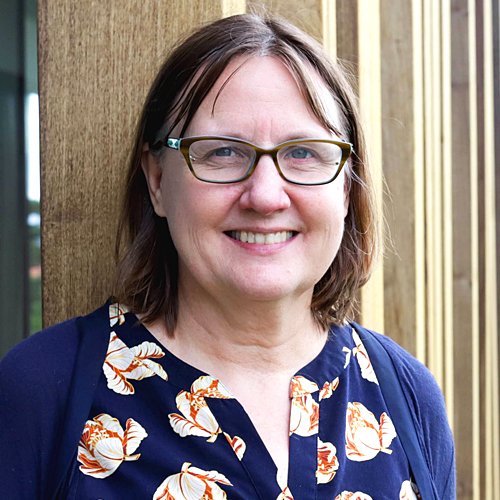
View Details / Enroll
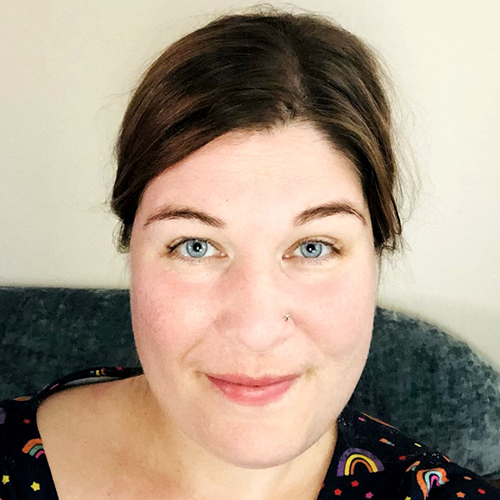
Protecting Breastfeeding by Facilitating Safe, Early Discharge from NICU with Home Nasogastric Tube Feeding

Amanda is a children's nurse, having worked on pediatric wards and in the community supporting children with complex health needs, although over ten years of her nursing career have been in neonatal care, where she is further qualified in specialty (QiS). She trained and volunteered in breastfeeding peer support two years into her nursing career, ultimately sitting the exam to become an IBCLC to ensure that the families within neonatal care had access to an infant feeding specialist familiar with their journey. Amanda has since further specialized in Neonatal Homecare, is a Nurse Practitioner in restrictive lingual frenulum, and has worked as an Infant Feeding Lead for a regional surgical NICU and SCBU, as well as a regional Infant Feeding Advisor to ten neonatal units across a regional network. She has recently been appointed to the Board of Trustees for the Lactation Consultants of Great Britain (LCGB), where she is the Neonatal Lead.
While approximately 80% of UK mothers initiate breastfeeding, by 3-4 months, just 15% of infants receive any breastmilk. Despite the low rates of breastfeeding nationally, in 2021-22, 64% of the NICU graduates in our unit were discharged receiving breastmilk. One possible reason for the higher rates of breastfeeding in this population may be our innovative home NGT feeding programme. In order to hasten discharge from NICU, many mothers feel under pressure to introduce bottles to meet “full oral feeding” criteria. The home nasogastric tube (NGT) feeding programme focusses on the infant’s and family’s needs, without rushing the infant towards full oral feeding, which some are not yet ready for. In this way, all oral feeds can be at the breast, with NGT feeds as required for supplementation. We aim to reduce unnecessary days in hospital, reduce readmissions post-discharge, keep families close to their infants, and embrace the integration of families as essential members of the neonatal care team. This presentation will discuss the practicalities of designing a discharge pathway that optimises parental confidence and ensures competence with home administration of NGT feeds. It will also discuss how to predict which infants are ideal candidates for short-term home NGT feeding, and how to transition to direct breastfeeding. Finally, the presentation will present a case for home NGT feeding as an intervention to protect the mother’s breastfeeding goals, optimise clinical outcomes for infants, and improve the experience of neonatal care for families.
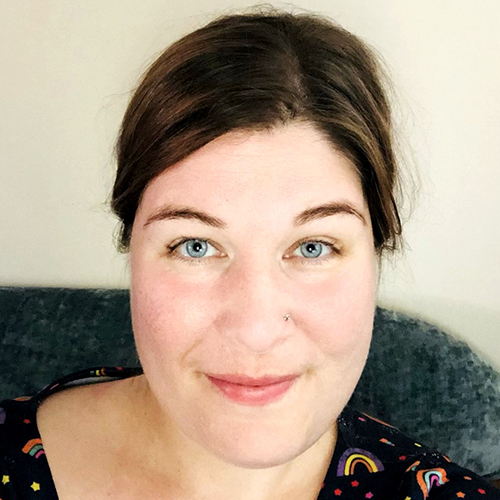
View Details / Enroll



